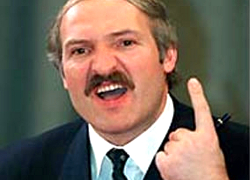Europe's Pet Dictator
23- Chrisian Caryl, Foreign Policy
- 14.12.2012, 16:26

Parts of the old Soviet bloc have moved on. So why is Belarus still mired in despotism?
"The KGB came to search our apartment," says Natalia Pinchuk, an elegant 48-year-old whose fair hair gives her a distinctly Nordic air. "They were looking for material to use in the case, but they didn't find anything." Last year, secret police grabbed her husband, human rights activist Ales Bialiatski, off a street in Minsk, the capital of the Belarusian police state. They packed him off to jail, where he remains today; he's now serving out a four-and-a-half-year sentence. (She last saw him in May, but further visits have been canceled by the prison authorities -- allegedly on grounds of "bad behavior.") The ostensible charge was tax evasion, but everyone knows what his real crime was: Bialiatski runs an organization that provides aid to political prisoners in the former Soviet republic.
The KGB? Political prisoners? Wait a minute. Isn't this 2012? The Soviet Union broke up 21 years ago. Today, Belarus's three neighbors to the West -- Poland, Lithuania, and Latvia -- are all members of the European Union and NATO. The citizens of these countries regularly elect new leaders through democratic, multiparty elections. They have free media, independent courts, and myriad institutional checks and balances.
In Belarus, population 10 million, Alexander Lukashenko has been in power since 1994. He recently gave an interview to foreign journalists in which he boasted of his status as "the last and only dictator in Europe." Under his rule, Belarus has preserved Soviet-era organizations like the Young Communist League and the Young Pioneers. And yes, the KGB -- the Committee for State Security -- still proudly operates under its old name. (The organization's website includes a number for a telephone "helpline," presumably for use by upstanding citizens eager who are eager to inform on their neighbors.) Even Vladimir Putin's Russia felt compelled to rename its internal security service. Not so Belarus; there's much about the place that harks back to the days of Brezhnev.
The United Nations may have observed Human Rights Dayearlier this week, but Minsk clearly didn't get the memo. Lukashenko, who got his start in politics as the director of a collective farm, cultivates a public persona that is equal parts gangster and a clown. He takes his seven-year-old sonMyakaly along to his meetings with visiting dignitaries and suits him up in a miniature officer's uniform (complete with his own little gold pistol) for military parades.
The buffoonery is deceptive. This is a man with a shark-like understanding of power. When Belarusians started campaigning against his regime back in the 1990s, a prominent journalist and two of Lukashenko's leading political opponents simply disappeared. The government launched a half-hearted investigation, but, oddly enough, no trace of the men has ever been found.
Potential critics got the message. The opposition is still alive, but just barely. Two years ago they managed to bring significant crowds onto the streets to protest a rigged presidential election. Lately they've resorted to some innovative tactics, like the so-called clapping protests. Even those who participated in these innocuous activities met with a brutal response from club-wielding police. (And that stunt by Swedish sympathizers, who airlifted teddy bears adorned with pro-democracy messages into the country this past summer, certainly drummed up some welcome publicity. Lukashenko was so angry that he fired two generals for the presumed lapse in the country's air defense system.) But they've faced an uphill battle -- actually something more akin to a perfectly vertical wall -- in their efforts to garner support.
Bialiatski's group, called Viasna ("Spring") Human Rights Center, has been decimated by the government's assault. (At one point, the KGB even arrested his 23-year-old son, Adam; he was later released, and now lives in Poland.) Bialiatski himself could have left before his arrest; it was clear where things were headed. "Everyone told him to leave," says Zhanna Litvina, a leading Belarusian journalist. (Her group, the Belarus Association of Journalists, won a Sakharov Prize in 2004.) "But he said, 'This is my country. I'm not guilty of anything. I'm not running away.'"
Chrisian Caryl, Foreign Policy









